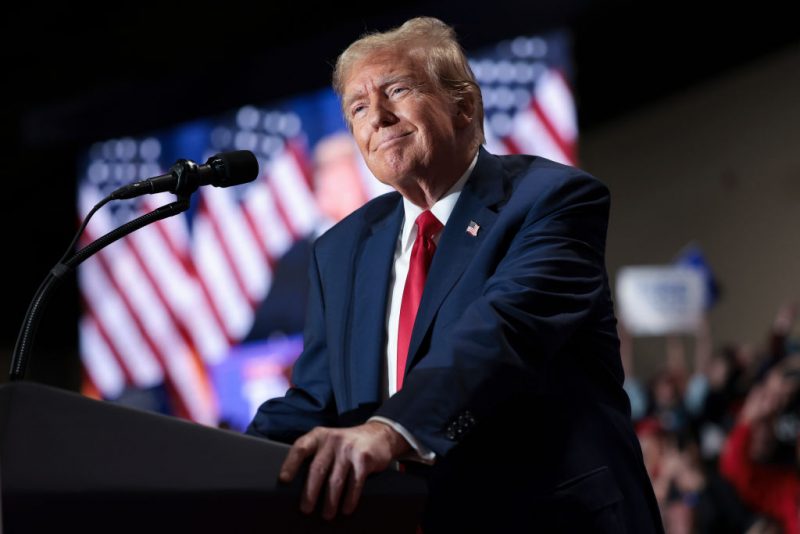After initially brushing off concerns about China’s massive military parade this week, President Trump took to social media to mock Chinese leader Xi Jinping over Beijing’s victory celebration marking the end of World War II.
Asked Tuesday about the Beijing parade commemorating the 80th anniversary of the war’s end, Mr. Trump said he was unconcerned about China’s military power: “China needs us much more than we need them.”
Later that night, he questioned whether Mr. Xi would acknowledge in his speech the “blood” and support the United States provided to China during the war. “Many Americans died in China’s quest for Victory and Glory,” Mr. Trump wrote. “I hope that they are rightfully Honored and Remembered for their Bravery and Sacrifice!”
Mr. Trump congratulated Xi and China’s “wonderful people” on the celebration but then turned to Russia’s Vladimir Putin and North Korea’s Kim Jong-un, who attended the parade. “Please give my warmest regards to Vladimir Putin, and Kim Jong Un, as you conspire against The United States of America,” he wrote on Truth Social.
It was the first time Mr. Trump directly acknowledged the anti-U.S. character of the growing alliance between China, Russia, and North Korea.
In his remarks, Mr. Xi did not mention the United States, but repeated his claim that China is a “great nation that is never intimidated by any bullies.” Mr. Putin and Mr. Kim stood beside him atop the Gate of Heavenly Peace under a portrait of Mao Zedong. It was the first joint appearance of the three powers since 1958, when Mao welcomed Kim Il-sung and Nikita Khrushchev.
Ahead of the event, Mr. Putin praised Beijing-Moscow ties as being at “an unprecedented level.” He said, “We were always together then, and we remain together now.”
North Korea has recently deepened its cooperation with Russia, even sending thousands of troops to aid Moscow in its war against Ukraine. Just before departing for Beijing, Mr. Kim highlighted new missile advances, including the development of a multiple-warhead ICBM system. South Korean officials said the timing signaled Pyongyang’s intention to join the trilateral front against the U.S.
China has long been suspected of helping North Korea develop missile technologies, including mobile launchers.
Despite rising tensions, Mr. Trump continues to back his plan to allow 600,000 Chinese students to attend U.S. universities. He told the Daily Caller: “I think it’s very insulting to a country when you say you’re not going to take your students.” The current number of Chinese students is around 300,000, and he suggested doubling it over two years.
Mr. Trump previously supported restricting visas but has since reversed course. China welcomed the change, while the House Select Committee on the Chinese Communist Party warned against increasing Beijing’s influence on U.S. campuses, calling CCP-funded groups a threat to “academic freedom, national security, and the human rights of Chinese students.”
Meanwhile, the U.S. Army plans to deploy Typhon missile systems to Japan this month during the Resolute Dragon exercise. The land-based launchers will be stationed at Marine Corps Air Station Iwakuni near Hiroshima. Col. Isaac Taylor of U.S. Army Pacific said the move underscores the U.S.-Japan alliance and commitment to a “free and open Indo-Pacific.”
China condemned the planned deployment, calling it a threat to regional security. The Typhon can fire both SM-6 and Tomahawk missiles, with the latter capable of striking targets up to 1,500 miles away.
Japan is also preparing to deploy its new Type-12 anti-ship missile with a range of 620 miles as part of its response to China’s expanding military presence in the region.
 Telegram is where we really talk. Don't miss out!
Telegram is where we really talk. Don't miss out!








